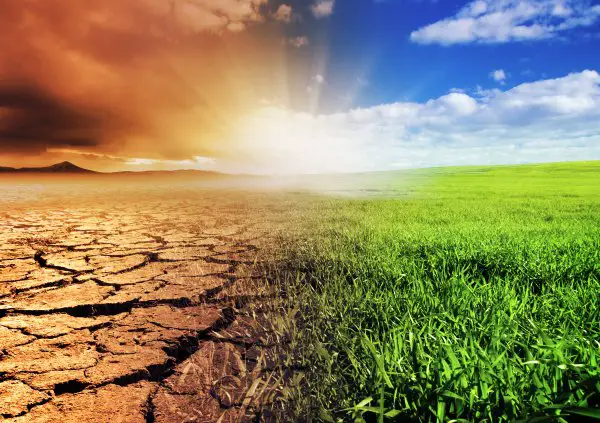Shocking Study: Humans Have Destroyed 83% Of All Wild Animals On Earth
Tags: News

Despite the human race accounting for just 0.01% of all living beings on Earth, they have caused the loss of 83% of all wild animals, as well as 50% of all plants, according to a recent assessment of life on the planet.
This study is the first to estimate the weight of every living creature, concluding that bacteria account for 13% and the huge array of life in the oceans makes up just 1% of all biomass. It also found that plants represent the largest proportion at 82%, whilst all other creatures such as insects, fungi and animals make up just 5%. Professor Ron Milo, from the Weizmann Institute of Science in Israel, who led the work published in the Proceedings of the National Academy of Sciences, said, “I was shocked to find there wasn’t already a comprehensive, holistic estimate of all the different components of biomass. I would hope this gives people a perspective on the very dominant role that humanity now plays on Earth.”
Due to the vast change on Earth caused by humans, scientists are said to be close to declaring a new geological era – the Anthropocene.
The study also revealed that farmed poultry makes up 70% of all birds, leaving only 30% wild. Further to this, wild animals account for just 4% of mammals whilst livestock makes up 60%, and humans add up to 36%. Milo commented, “It is pretty staggering. In wildlife films, we see flocks of birds, of every kind, in vast amounts, and then when we did the analysis we found there are [far] more domesticated birds.”
The changes on our planet have led scientists to discuss the sixth mass extinction of life to occur in the Earth’s four-billion-year history, following the huge destruction humans have caused by farming, logging and development. Currently, a huge 50% of animals are thought to have been lost in just 50 years, meaning that just one-sixth of wild mammals currently still remain. Milo stated, “It is definitely striking, our disproportionate place on Earth. When I do a puzzle with my daughters, there is usually an elephant next to a giraffe next to a rhino. But if I was trying to give them a more realistic sense of the world, it would be a cow next to a cow next to a cow and then a chicken.
“Our dietary choices have a vast effect on the habitats of animals, plants and other organisms. I would hope people would take this [work] as part of their world view of how they consume. I have not become vegetarian, but I do take the environmental impact into my decision making, so it helps me think, do I want to choose beef or poultry or use tofu instead?”
Paul Falkowski, from Rutgers University in the US, commented on the study saying, “There are two major takeaways from this paper. First, humans are extremely efficient in exploiting natural resources. Humans have culled, and in some cases eradicated, wild mammals for food or pleasure in virtually all continents. Second, the biomass of terrestrial plants overwhelmingly dominates on a global scale – and most of that biomass is in the form of wood.”
I’m Jess Murray, wildlife conservationist, photographer, and writer. Follow my Facebook page and Instagram account to be part of the journey. I like to document the natural world and create awareness through my writing so that your future can be sustainable and positive.
Image Credit: kwest19 / 123RF Stock Photo
Leave Comment: